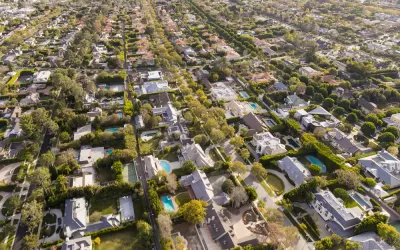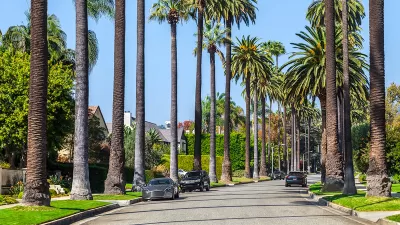A new real estate transfer tax won the approval of L.A. voters after being promoted as a “mansion tax.” No some real estate and development experts are saying that the new transfer tax will have a much broader impact on the real estate market.

“Just weeks after Los Angeles voters backed a new measure that puts a one-time transfer tax on property sales above $5 million to generate money for affordable housing and homelessness prevention, the city’s affluent homeowners are exploring potential ways of avoiding the tax,” reports Jack Fleming for the Los Angeles Times. Prop-development advocates in the city are also concerned about the measure’s likely effect on the development market in the nation’s second-most-populous city.
Measure ULA, as the voter-approved measure is called, imposed a 4 percent tax on sales of property valued at more than $5 million, increasing to 5.5 percent on property worth more than $10 million.
Jason Oppenheim of the Oppenheim Group is quoted in the article saying the 4 and 5.5 percent taxes amount to 20 to 30 percent of developer profits. “So those developers will choose to develop in other luxury communities where they won’t have to pay the tax, such as Beverly Hills, West Hollywood or Newport Beach.”
Shane Phillips, Housing Initiative Project Manager for UCLA’s Lewis Center, is also quoted in the article explaining his opinions of the measure’s effect likely effect on the development.
“[G]iven L.A.’s housing shortage, he thinks developers building new, mixed-income multifamily construction should be exempt from the tax, or else they might be discouraged from building such housing. As it stands, developers who buy land for less than $5 million and then construct multifamily housing on it, likely pushing its value above $5 million, would owe the transfer tax whenever they sell the property,” writes Fleming.
Phillips and others from the Lewis Center, have published a pair of reports on the expected effects of Measure ULA in recent months:
FULL STORY: L.A.’s rich are already scheming ways to avoid new ‘mansion tax’

Trump Administration Could Effectively End Housing Voucher Program
Federal officials are eyeing major cuts to the Section 8 program that helps millions of low-income households pay rent.

Planetizen Federal Action Tracker
A weekly monitor of how Trump’s orders and actions are impacting planners and planning in America.

Ken Jennings Launches Transit Web Series
The Jeopardy champ wants you to ride public transit.

Rebuilding Smarter: How LA County Is Guiding Fire-Ravaged Communities Toward Resilience
Los Angeles County is leading a coordinated effort to help fire-impacted communities rebuild with resilience by providing recovery resources, promoting fire-wise design, and aligning reconstruction with broader sustainability and climate goals.

When Borders Blur: Regional Collaboration in Action
As regional challenges outgrow city boundaries, “When Borders Blur” explores how cross-jurisdictional collaboration can drive smarter, more resilient urban planning, sharing real-world lessons from thriving partnerships across North America.

Philadelphia Is Expanding its Network of Roundabouts
Roundabouts are widely shown to decrease traffic speed, reduce congestion, and improve efficiency.
Urban Design for Planners 1: Software Tools
This six-course series explores essential urban design concepts using open source software and equips planners with the tools they need to participate fully in the urban design process.
Planning for Universal Design
Learn the tools for implementing Universal Design in planning regulations.
Ada County Highway District
Clanton & Associates, Inc.
Jessamine County Fiscal Court
Institute for Housing and Urban Development Studies (IHS)
City of Grandview
Harvard GSD Executive Education
Toledo-Lucas County Plan Commissions
Salt Lake City
NYU Wagner Graduate School of Public Service





























